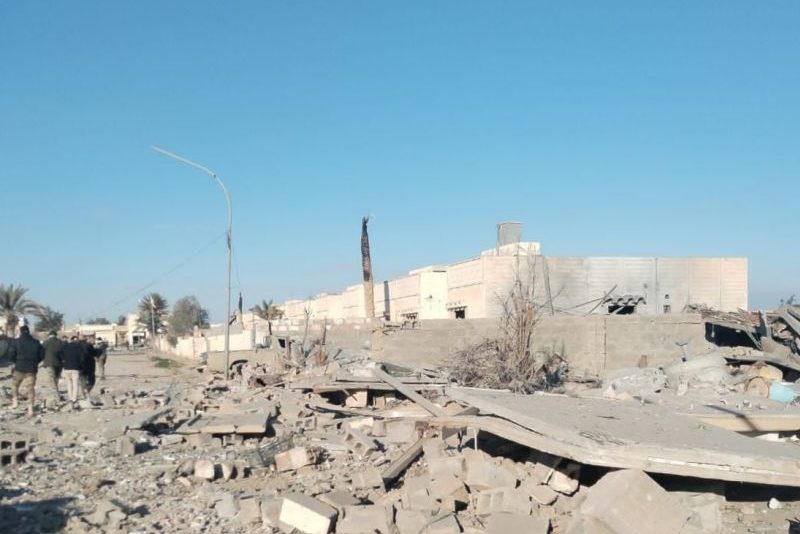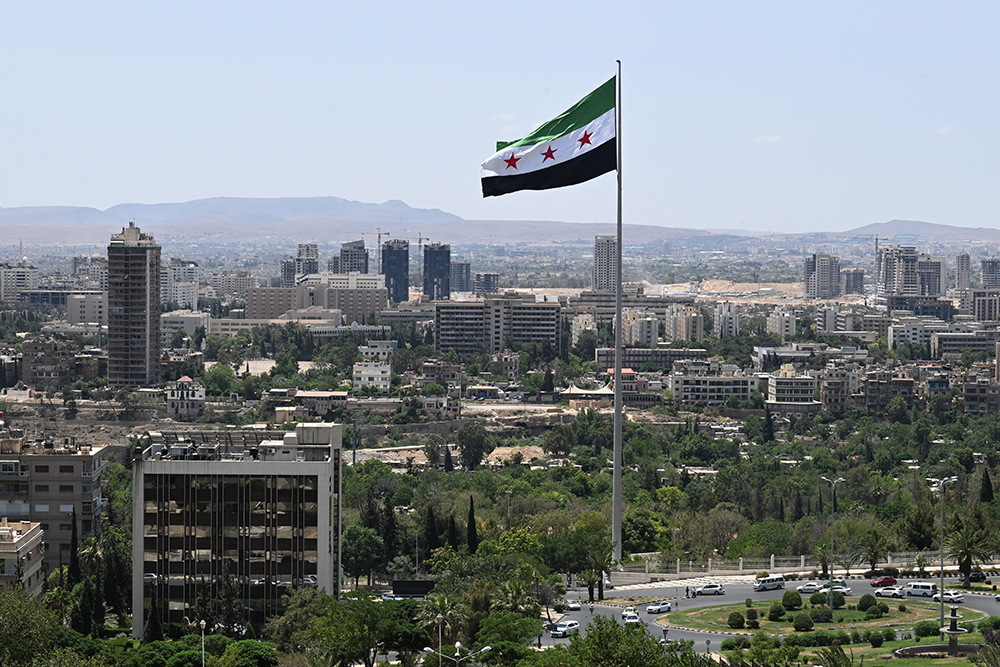The drone strike in northeastern Jordan that killed three US troops and wounded forty more last weekend necessitated an American military response. Under no scenario was President Biden not going to retaliate. The question was how strong the retaliation would be. We now have the answer.
Yesterday’s series of airstrikes against the Iran’s Islamic Revolutionary Guard Corps and Iranian-supported militias was by far the largest US military operation we’ve seen in Iraq and Syria since Biden’s term began. Before yesterday, the US limited its operations to precision strikes to one or two militia facilities at a time. Those operations didn’t result in the deterrent effect the White House was looking for. The militia attacks continued at a high clip, so much so that it was unusual for several days to go without an incident. Biden and his advisors obviously felt something grander needed to be done. And grander it was; US aircraft, including long-range B-1 bombers, struck more than eighty-five IRGC and militia targets in seven locations using 125 precision munitions. While the battle damage assessment is ongoing, the Pentagon is happy with the result. ”We feel really confident” was how General Douglas Sims, the director of the Joint Staff, described it.
Republican lawmakers, of course, weren’t impressed with the response. Senator Roger Wicker, the top Republican on the Senate Armed Services Committee, blasted the administration for telegraphing the US response a week in advance, which allowed the Iranians to move some of their advisors out of harm’s way. It’s a legitimate complaint from a military perspective but was likely a part of the administration’s strategy; in the service of avoiding a regional escalation or a war with Iran, Biden didn’t want to kill Iranians if he could avoid it.
Other actors, like the Iraqi government, weren’t pleased with US military action either. Iraqi prime minister Mohammed Shia al-Sudani and his political base, which in essence center on the political wings of the very Shia militias the US targeted last night, have grown increasingly irritated at how Washington is acting in their country. US policymakers would argue that they have the right to defend their people from attack, particularly if the Iraqi army is unable or unwilling to rein the militias in. The Iraqis, however, don’t find that claim persuasive, if only because the Americans are in Iraq today at the invitation of the Iraqi government. “These airstrikes constitute a violation of Iraqi sovereignty, undermine the efforts of the Iraqi government, and pose a threat that could lead Iraq and the region into dire consequences,” the Iraqi military’s spokesman said in a statement.
It’s tempting to dismiss this statement as hot air, the ravings of an Iraqi state which at this point in time is all but hijacked by militia interests. But the US can’t dismiss it as a nothingburger. Considering that last night’s strikes are likely the first in what could be another few days (if not weeks) of military action in Iraq and Syria, policymakers back in Washington would be foolish to ignore the consequences of their policy choices. For one thing, it’s unlikely the militia attacks against Americans in either country will stop. Less than twenty-four hours after the US strikes, reports emerged that militias launched attacks at Ain al-Asad airbase in western Iraq, Hariri airbase in Iraq’s Kurdistan region and al-Tanf in Syria. The last facility on this list is only a few miles from Tower 22, the small outpost where three Americans lost their lives a week ago.
Biden’s goal is to unleash enough pain on the militias until one of two things happens: they either lose the capacity to attack US forces in the region or conclude on their own that continuing those attacks isn’t worth it. Both will be extremely difficult to accomplish, assuming it can be accomplished at all (which is doubtful). On the capacity side of things, the militias won’t run out of weapons. It’s important to note that some of them are actually under the Iraqi army’s umbrella and are financed by the Iraqi state — the same state successive US administrations built from scratch after overthrowing Saddam Hussein in 2003 and replacing him with a system of sectarian-based quotas. The Iranians have spent most of that time building extensive, durable supply lines into Iraq, which Tehran will utilize to rebuild whatever capacity the Americans wipe out.
The militias are highly unlikely to change their calculus on the US presence in Iraq and Syria either. Their position on this has long been consistent: unless the Americans pull out, they will continue to be harassed. It’s hard to see this position changing, let alone ending. Indeed, they might be even more persistent after the U.S. airstrikes on Friday. As the US military should have learned during other wars against non-state actors (see: Vietnam in the 1960s and 1970s, Lebanon in the 1980s, Iraq in the early 2000s and Afghanistan from 2001-2021), there is only so much blunt force can do in the face of a committed adversary. The old Taliban refrain is instructive: “You have the watches but we have the time.”
We should expect more US strikes in Iraq and Syria over the coming days. ”Our response began today,” Biden wrote in a late-night press release. “It will continue at times and places of our choosing.” Yet ultimately, no amount of US military power will be able to solve the problems these militias represent. Only Iraqis can do solve it, if they choose to.


























Leave a Reply